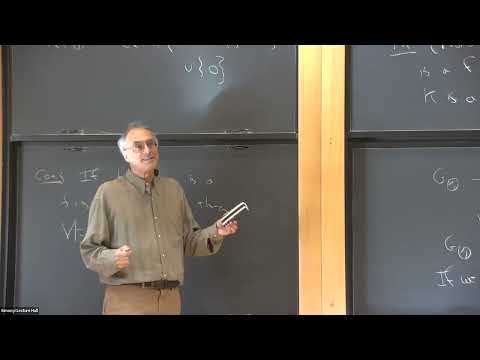Abstract
Let E be an elliptic curve defined over \Q. The \Q¯-points of E form an abelian group on which the Galois group G\Q=\Gal(\Q¯/\Q) acts. The usual Galois representation associated to E captures the action of G\Q on the points of finite order. However, one could also look at the action of G\Q on the free part of E(\Q¯). This infinite-dimensional representation encodes a great deal of interesting arithmetic information. I will state a conjecture concerning this other Galois representation and present supporting evidence from probability theory, Ramsey theory, algebraic geometry, and number theory.
